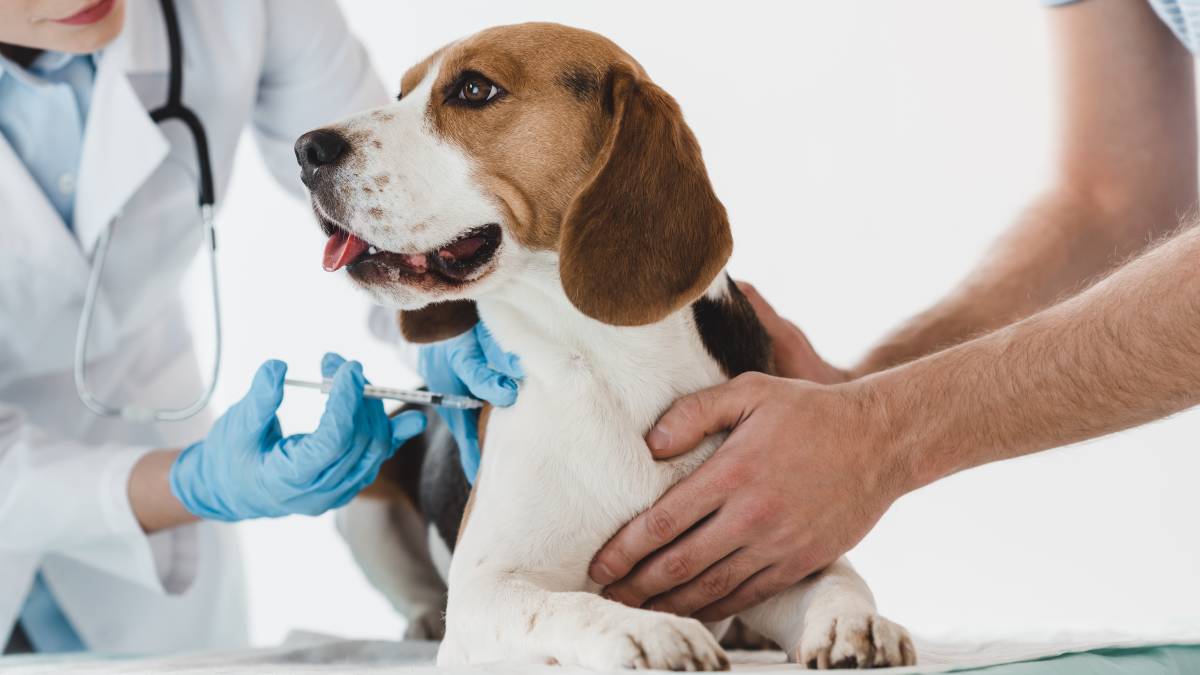
Why is vaccinating your puppy important?
As a new puppy owner, you may be wondering why it’s so important to vaccinate your furry friend. After all, they seem healthy enough without it. However, there are many deadly diseases out there that your puppy could be susceptible to without vaccination. By vaccinating your puppy, you’re not only protecting them, but you’re also protecting other dogs they may come into contact with. Here’s a look at why vaccinating your puppy is so important.
Without vaccination, puppies can contract deadly diseases.
Puppies are susceptible to a number of deadly diseases Without vaccination, they are at risk of contracting these diseases and potentially dying from them Puppies need to be vaccinated in order to protect themselves from these deadly diseases Vaccinating puppies is important because it helps to protect them from contracting deadly diseases Puppies who are not vaccinated are at risk of contracting a number of serious and sometimes fatal diseases Vaccination is the best way to help keep puppies healthy and safe from these dangerous illnesses Some of the deadly diseases that puppies can contract without vaccination include parvovirus, distemper, and hepatitis These diseases can cause severe illness or death in puppies if they are not treated promptly and correctly Vaccinating puppies against these diseases is the best way to ensure their safety and health.
See how vaccination protects other dogs?
Whenever you get a new puppy, one of the first things you need to do is schedule a series of vaccinations These will protect your puppy from some very serious diseases, and will also help to protect other dogs that he or she comes into contact with. Here’s a look at why vaccinating your puppy is so important.
As a new puppy owner, it is important to be aware of the importance of vaccinating your puppy Vaccinations help to protect puppies from a variety of serious diseases, many of which can be fatal While the initial cost of vaccinating your puppy may seem high, it is a small price to pay in comparison to the costs associated with treating a sick puppy Additionally, by vaccinating your puppy, you are helping to protect the health of other dogs and people in your community.
What are the risks of vaccinating my pet?
There is always a small chance of complications after vaccinations, which may include tissue swelling, fever, lethargy, and soreness. In very rare cases, pets can have an allergic reaction to the vaccine that ranges from mild to severe. But if your pet isn’t vaccinated, he is much more likely to get a disease that will kill him/her.
What determines which vaccines my pet should receive?
Your veterinarian will look at how much exposure risk the animal has to figure out if he needs a certain vaccination. This includes:
Age: Puppies and kittens need special protocols that help them build up immunity to diseases. Adult pets need booster shots to keep immunity levels high after the initial vaccine series.
For example, some diseases are more likely to spread in heavily forested areas, such as the Northeast.
Lifestyle: For example, cats who live only indoors with no contact with other felines have little risk of exposure to feline leukaemia and may not need this vaccination. On the other hand, indoor/outdoor cats or those that spend time at boarding facilities or in homes with other cats have a higher exposure risk and should be vaccinated as a result.
How often do I need to vaccinate my dog to help keep it from getting sick?
Puppies will usually receive 3 vaccinations, given every 2-4 weeks apart, starting when they are 6-8 weeks old. It is recommended that they get a booster shot once a year. Your vet may have more specific recommendations for your dog based on their lifestyle and risk factors. If you have any questions about vaccination, consult with your vet.
Australian Vaccination Guidelines
The Vaccination Guideline Group (VGG) of the WSAVA recommends that vaccines be defined as core, non-core, or not recommended. 2 Core vaccines should be administered to all animals to protect them against severe, life-threatening diseases that have a global distribution. Non-core vaccines are required only for those animals whose geographic location, local environment, or lifestyle places them at risk of contracting specific infections. “Not recommended vaccines” are those that have insufficient scientific evidence to justify their use.
There are two types of vaccines for dogs: core and non-core. Core vaccines are those that all dogs should receive, as they protect against potentially fatal diseases. The core vaccines for dogs in Australia are canine distemper virus, canine adenovirus, and canine parvovirus. They are combined within a single vaccine, commonly known as the C3 vaccine.
Non-core vaccines are administered based on an assessment of the dog’s individual risk factors. This includes factors such as the dog’s location, lifestyle, and exposure to infection. Therefore, it is important to speak to your veterinarian about which vaccines are most appropriate for your dog. Non-core vaccines in Australia include those which provide protection against infections caused by canine parainfluenza virus, Bordetella bronchiectasis (these both contribute to kennel cough) and leptospirosis. The canine parainfluenza virus and Bordetella bronchiectasis vaccine (more commonly known among the core vaccines as the C5 vaccine) is recommended for dogs who spend a lot of time with other dogs, such as on walks, at the park, day care, puppy preschool, or boarding.
The leptospirosis vaccination is recommended for dogs who live in at-risk areas or have exposure to stagnant bodies of water, livestock, or rodents. Leptospirosis is also a zoonotic disease, which means it can be passed from animal to human.
Australia is a rabies-free country and thus a rabies vaccine is not necessary for dogs remaining in Australia. If you are planning on taking your dog overseas, you will need to speak to your veterinarian about what vaccinations will be necessary for travel to and living in the destination country.
|
|
Core |
Non-core |
Not recommended. |
|
Dogs |
Canine distemper virus (CDV) Canine adenovirus (CAV) Canine parvovirus (CPV-2) |
Parainfluenza virus (PI) Bordetella bronchiectasis (Bb) Leptospira interorgan |
Coronavirus |
|
Cats |
Feline parvovirus (FPV) Feline calicivirus (FCV) Feline herpesvirus (FHV-1) |
Feline leukaemia virus (FeLV) Chlamydia Felis Feline immunodeficiency virus (FIV) |
|
